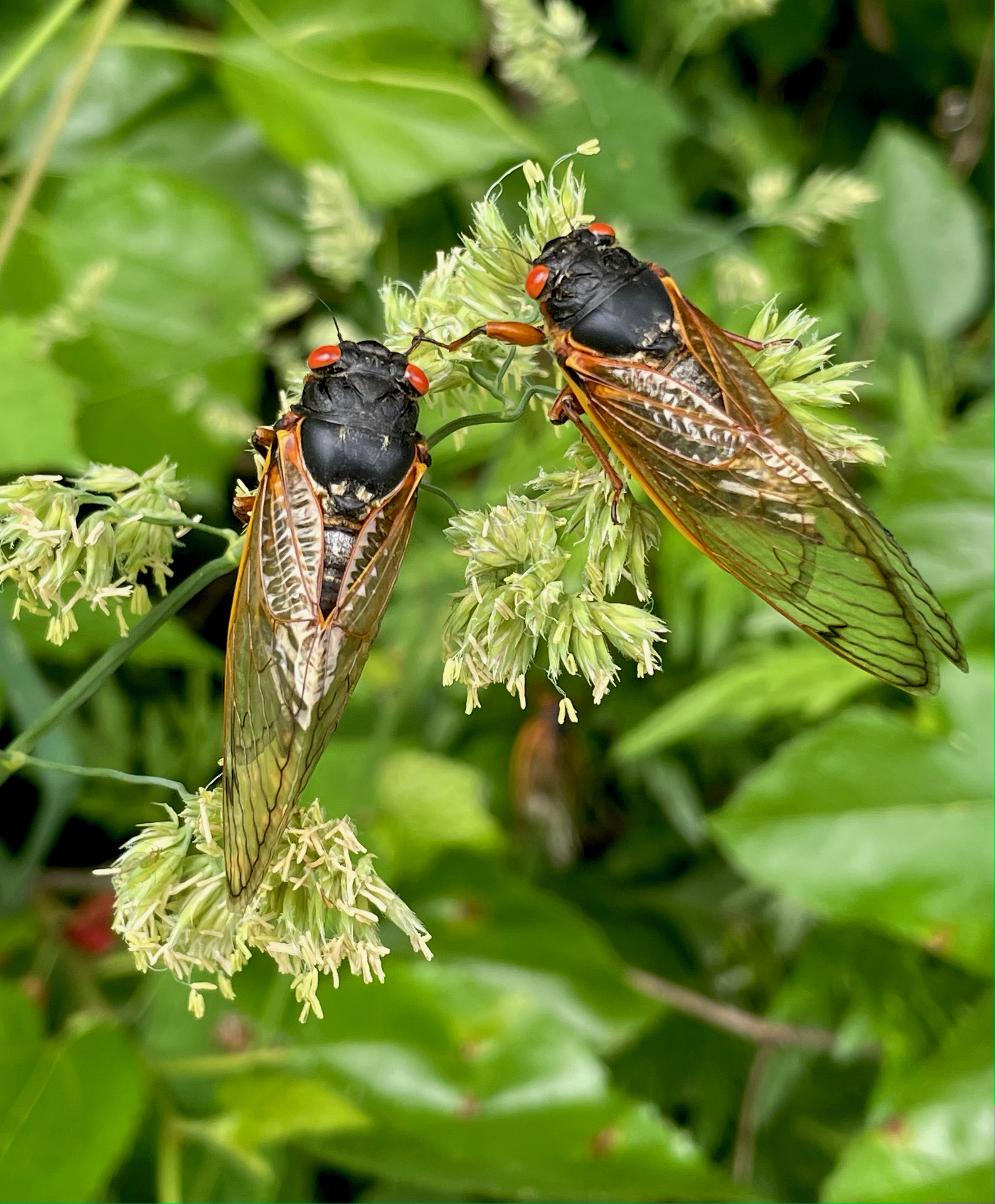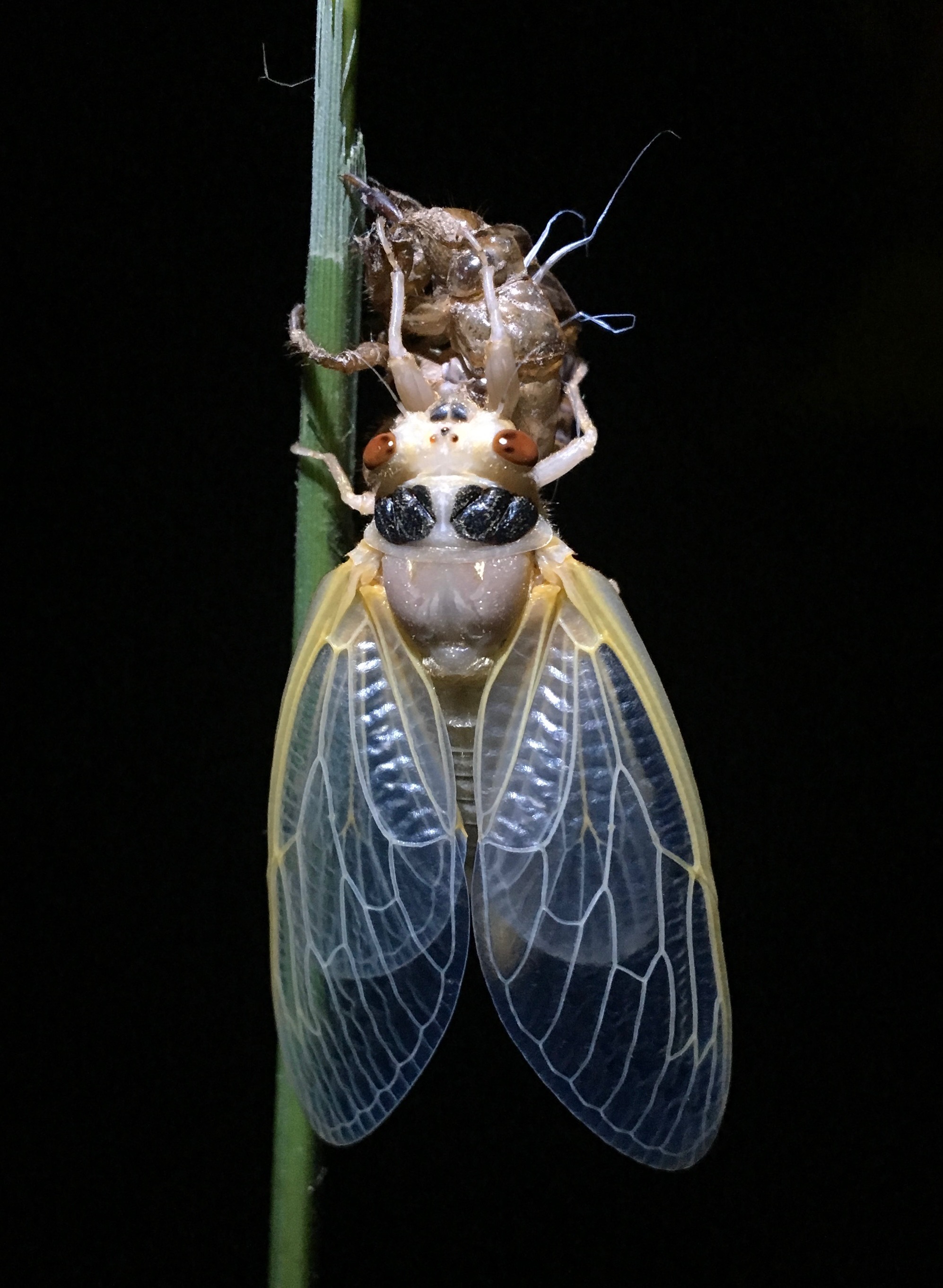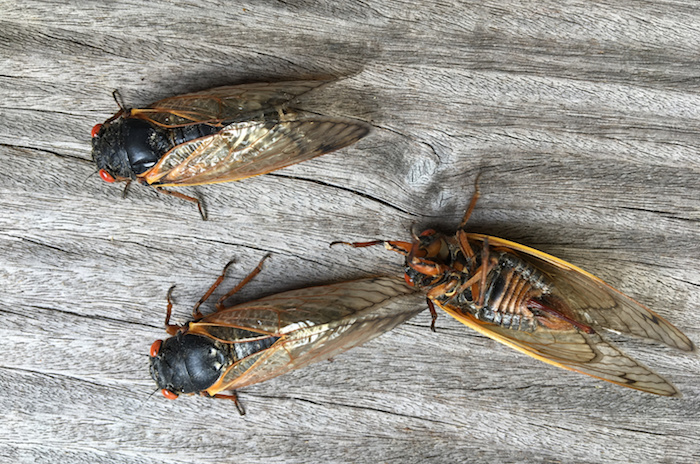Excitement is buzzing over a historic bug event this spring. For the first time in over two centuries, scientists are anticipating a historical convergence of two broods of periodical cicadas, Brood XIII and Brood XIX, that are scheduled to emerge at the same time in the U.S. Midwest and South in the late spring, early summer of 2024. It’s an event that last occurred in 1803.
John Lill is a professor of biology at the George Washington University. His expertise includes plant-insect interactions, insect ecology and evolution. Lill’s research interests focus on the ecology and evolution of plant-herbivore interactions and more specifically, understanding the joint impacts of host plant traits and natural enemies on insect herbivore life history traits, behavior, population dynamics, and host plant ranges.
In particular, Lill and his colleagues have focused their research efforts on cicadas. Lill’s latest research on the ecological impacts of cicada emergences was published last fall in the journal Science. In this study, Lill and his co-researchers quantified the widespread changes the 2021 periodical cicada emergence had on the feeding patterns of birds and its downstream effects. The research team said this was one of only a few studies that has explored the indirect effects of periodical cicada emergence events on forest food webs.
Lill can discuss the cicada emergence events happening this spring, including the historical emergence of cicadas set to happen in the U.S. Midwest as well as the impact of these emergences on other species and the ecosystem. He and his colleagues will be in Chicago to further their studies of cicadas.
Lill recently spoke with Slate about the ecological impacts of cidada emergence events, since a pulse of these bugs provides a feast for predators like birds, squirrels, raccoons and ants, who would all be seeing periodical cicadas.
“[These predators| all naïve to the fact that [the cicadas are] coming out, because most organisms don’t live 13 or 17 years,” Lill told Slate. Other than people, “nothing else really knows that they’re coming’.”
If you would like to speak with Prof. Lill, please contact GW Senior Media Relations Specialist Cate Douglass at cdouglass gwu [dot] edu (cdouglass[at]gwu[dot]edu).
gwu [dot] edu (cdouglass[at]gwu[dot]edu).
-GW-





